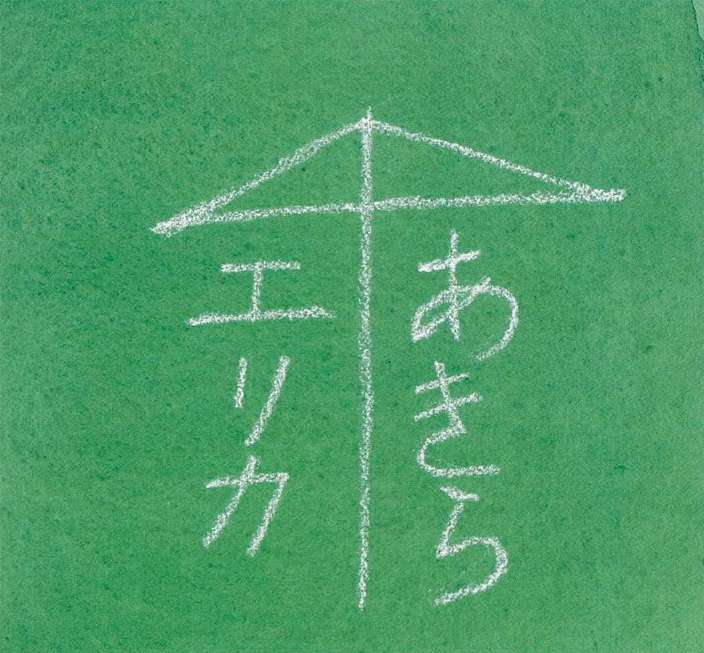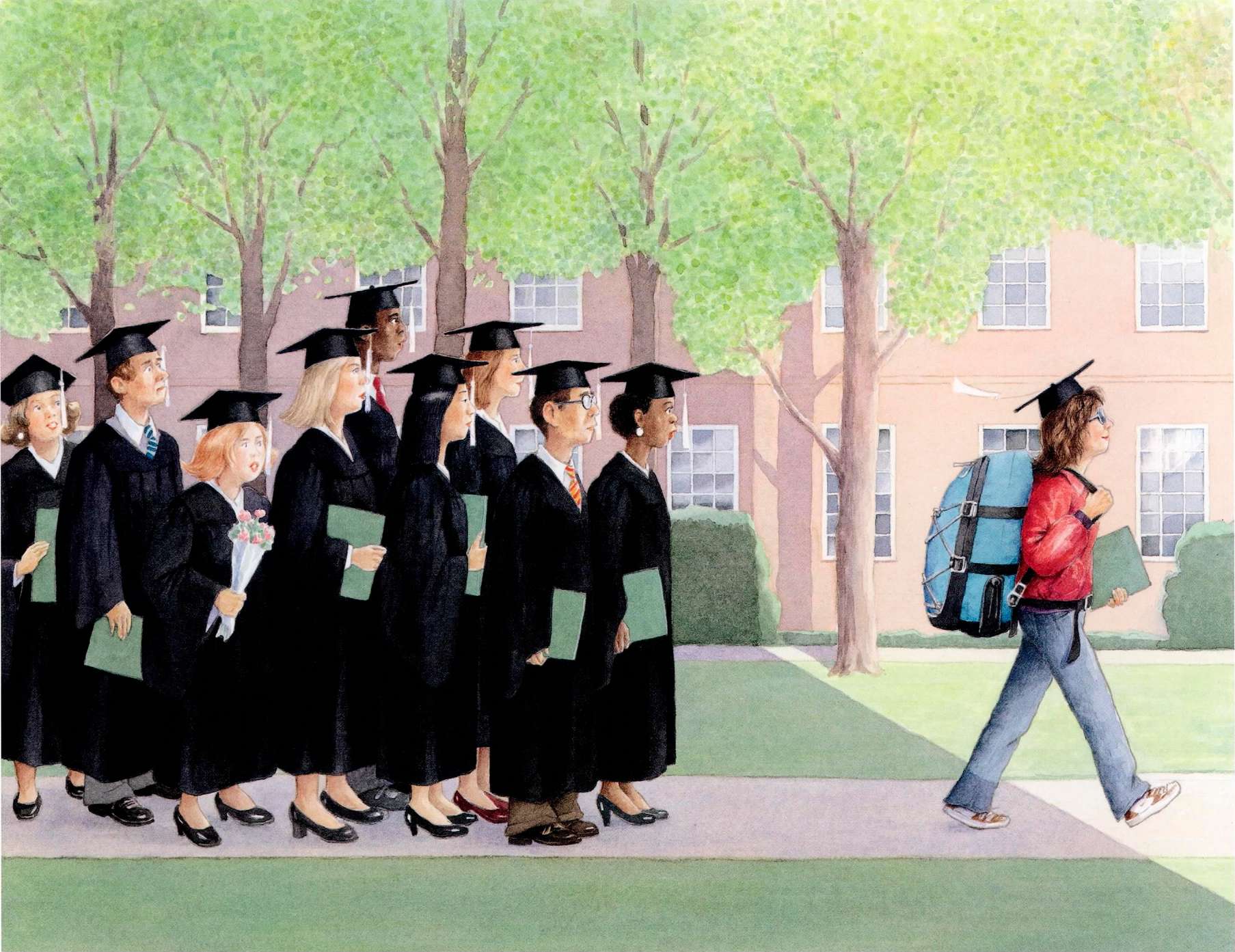Authors: Allen Say
Erika-San
Allen Say
ERIKA-SAN

Allen Say
Houghton Mifflin Books for Children
Houghton Mifflin Harcourt
Boston 2009
Copyright © 2009 by Allen Say
All rights reserved. For information about permission to reproduce selections from this book, write
to Permissions, Houghton Mifflin Company, 215 Park Avenue South, New York, New York 10003.
Houghton Mifflin Books for Children is an imprint
of Houghton Miffflin Harcourt Publishing Company.
The text of this book is set in Centaur.
The illustrations are done in watercolor.
Library of Congress Cataloging-in-Publication Data
Say, Allen.
Erika-san / written and illustrated by Allen Say.
p. cm.
Summary: After falling in love with Japan as a little girl, Erika becomes a teacher and fulfills her
childhood dream by moving to a remote Japanese island.
ISBN 978-0-618-88933-4
[I. JapanâFiction.] I. Title.
PZ7.S2744Er 2008
[E]âdc22
2008000601
Printed in Singapore
TWP 10 9 8 7 6 5 4 3 2 1
For
U
RSALA-SAN
In her grandmother's house, framed pictures hung in the hallway. One of them showed a cottage with lighted windows. Erika would remember the picture all her life.
"I want to live there," she said the first time she saw it.
"It's an old print, darling," Grandmother said. "Grandpa bought it in Japan when he was a young man."
"I want to go there when I grow up," Erika said.
And since that day, Erika wanted to know more about Japan, so Grandmother checked out Japanese picture books and folktales from the library and read them to her at bedtime.

Erika made many friendsâsome of them Japaneseâand learned to say "konnichiwa" for "hello" and "sayonara" for "goodbye" and many other words besides. She studied Japanese in middle school and in high school and all the way through college.
The day Erika graduated, she was the first to say goodbye to all her friends.
"What's the hurry? Aren't you coming to the party?" they asked.
"Sayonara, everybodyâI've got a teaching job in Tokyo!"

But when Erika arrived in Tokyo, she could not remember a single word of Japanese.
"Oh, dear," she sighed. "This isn't a city ... it's a hundred cities all crammed together! And everything looks so new. Am I going to find my house here?"
She telephoned the agency that had found the job for her.
"Where is old Japan?" she asked. "I want to work in a smaller city."
"There is another job about three hours by the bullet train," the agent told her.
"I'll take it!" Erika said.

Erika struggled to the bullet train platform.
Now I'm in a space station, she thought. And here comes the rocket. This is going to take me to old Japan? Really, it feels more like I'm on my way to Mars!

Three hours later she came to a small city with low buildings and temples and no skyscrapers.
"Well, this is more like what I expected," she said, smiling. "A kind of place for cottages with thatched roofs ... so lovely and quiet ... But it's
too
quiet. Where are the people?"
She wandered through the empty streets until she heard roars of voices like the crashing of waves.
"A football stadium? In Japan?"

Erika walked to the large town square, and there she was swallowed up in a huge crowd. People bumped and jostled her from all sides, shouting and clapping their hands.
They must have followed me from Tokyo, she thought.
She called the agency once again.
"Please send me to a quieter place," she pleaded with the agent.
"The only other opening we have is on a remote island. It's so out of the way that no one wants to go there."
"I will!" Erika said.

Erika arrived on the island the next morning.
"This looks promising," she told herself. "Forests and hills and green mountains ... just the right background for a little house..."
She came to a restaurant named Kamome. "That's 'seagull,'" she said, and walked in. It was empty except for a man and woman working behind the counter.
"Are you open for business?" she asked.
"Oh, yes, of course. Please sit anywhere," they said, and bowed.
Erika sat at the counter and ate her lunch.
"This is the best miso soup I've ever had," she told them.
The woman served her another bowl. And the couple told her of the apartments in the neighborhood and how to get to the school where Erika was to teach. By the time she left, she was calling them Mama-san and Papa-san.

The next morning, from the moment Erika entered the schoolyard, a crowd of children surrounded her.
"Foreigner! Foreigner!" they chanted in singsong voices.
"Oh, dear," she sighed. Once again, Erika could not think of a single Japanese word. Then she heard the sound of a whistle.
"Stand back, children, stand back!" A man came running. "Please forgive us," he said, and bowed. "We get so few foreign visitors here that the children are most curious. We heard that you were coming and they've been very excited."
"I'm so glad to meet you. My name is Erika," she said.
"Oh, wonderful, you speak Japanese! I'm Akira Imai. Let me show you to the principal's office."
By lunchtime, all the students called her Erika Sensei.
Sensei
means "teacher." Mr. Imai called her Erika-san, and she called him Aki-san.
"I'd be very happy to give you a tour of the island over the weekend," Aki offered.
"I would love that." Erika bowed.
